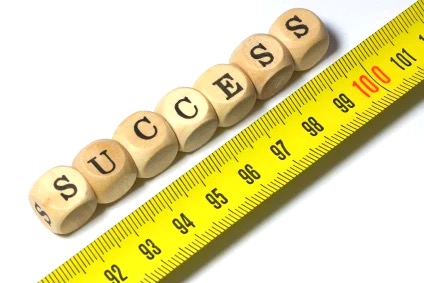“Measure what is important; don’t make important what you can measure.”
– Robert McNamara
I was listening to a podcast recently and it got me to thinking about what is important for us to measure. How are our actions shaped and influenced by what we are measuring? What actions we are focused on? Can what we are focused on sometimes misalign our actions with our ultimate goals? Do we focus on what we can take control of? We will explore this in this week’s Inside Look at Building Towards Wealth.

In performance management, they often talk about “lagging” and “leading” indicators. But what do they mean exactly?
Lagging indicators are typically “output” oriented, easy to measure but hard to improve or influence while leading indicators are typically input oriented and easier to influence.
Let me illustrate this with an example: For many of us, a personal goal is weight loss. A clear lagging indicator that is easy to measure but not easily changed overnight. You want to go from 200 lbs to 180 lbs. But how do you actually reach your goal?
For weight loss there are 2 leading indicators: 1) Calories taken in and 2) Calories burned. These 2 indicators are easier to influence. You can measure calories using scales and apps and you can use a variety of devices to help estimate calories out.
If I want to lose weight I can’t snap my fingers as there is no direct action, short of chopping off a body part, that will cause the weight loss. Weight is easy to measure and harder to change.
If I want to bring about the change I need to affect the calorie balance. I can much more easily influence the calories in and the calories out.
This example has a very direct parallel to financial planning. Everybody wants to get rich. Everybody wants that X dollar net worth. At the end of the day, we don’t have as much direct control as we would like in reaching that number. The reason is that your net worth is a lagging indicator. It is primarily the result of the hard work that you do in other areas.
Your net worth will largely be the result of things that you can control. Things like how much you spend and how much you save. If you focus on the things that you can control, you will have a greater chance of eventually being able to attain your long term goals.
As with dieting. There is no silver bullet. There is no magical pill that you can take to get to your dream weight and there is no magical investment or switch that you can flip to get you to your ultimate financial goal. It is the result of a lot of smaller, consistent actions.
It is easy to get sidetracked doing this unglamorous work and controlling the small actions. Everybody wants to be rich but nobody wants to think about saving an extra $500 a month or skipping the new car. We often get sidetracked and lose focus of the unglamorous day to day grind that will actually get us results.
When our 401(k) balance, savings account, or 529 plan don’t do well enough, fast enough, we often get distracted and lose focus on the long term goals and we stop doing the day to day things that will actually help us to accomplish our goals for us.
When thinking about trying to reach your goals, think about whether you are measuring the lagging indicators, like your weight or your account balance, or whether you are measuring your leading indicators, which is the amount that you spend, and the amount that you save. Getting rich is not an activity, saving more and spending less are.

